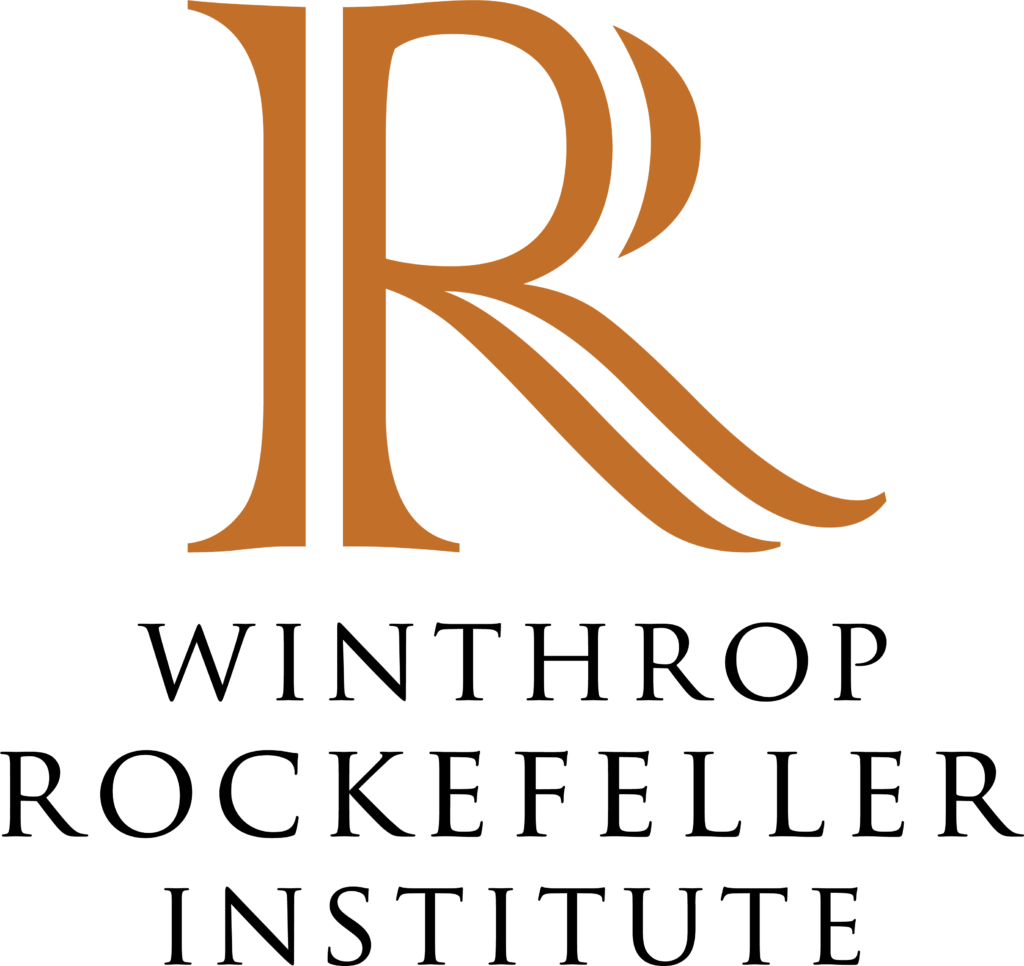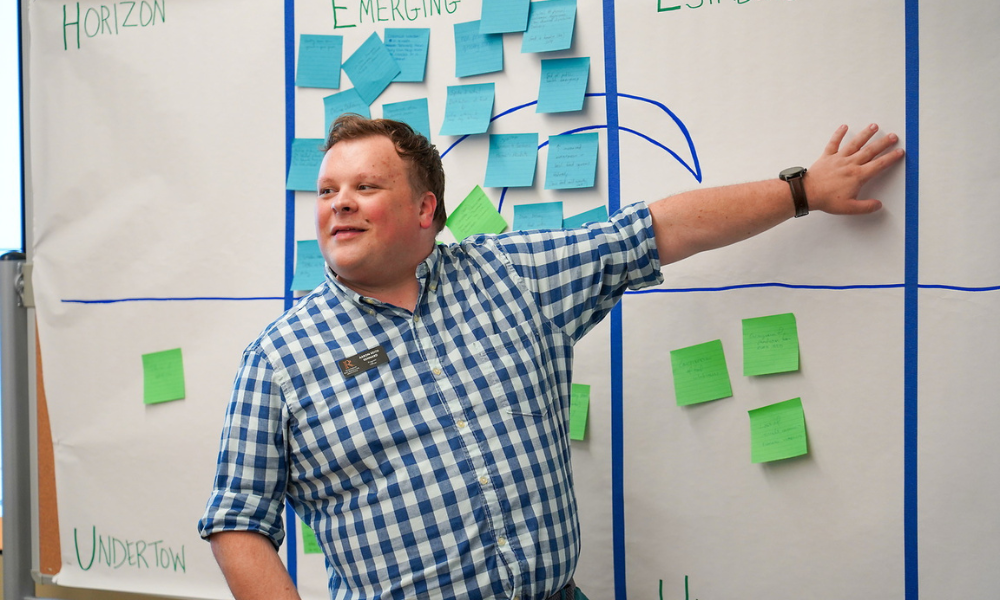by Molly Thomason
Being atop Petit Jean Mountain, the Institute is pretty far away from the ocean. As a matter of fact, I have never stood on a beach, watching the waves as they come to shore. Yet that does not change the fact that my current favorite facilitation tool is the Wave Analysis of Trends.
Within the Institute Programs and Education teams, we use many different facilitation tools to aid others in the search for solutions. These exercises help organize thoughts, gain consensus around an idea, or find insights outside the box. They are the most fun when everyone breaks out of their routine and arrive at unique outcomes. The Wave Analysis embodies all of this and more.
The Wave Analysis — also called Horizon, Emerging, Established, Disappearing (HEED) — is an environmental scanning tool attributed to Technology of Participation (ToP)®. It takes a topic and allows a group to examine it using the metaphor of an ocean wave forming. Wave imagery and sharing personal experiences are encouraged in the process, helping participants better understand how this exercise will help focus their ideas and build toward transformational change.


Creating an understanding of a topic’s current reality is crucial to any action planning. The Wave exercise allows the space for a group to be honest about the external realities surrounding a specific issue. When we used the exercise in our recent Health Equity Collaboration, the participants were asked to look at our state and reflect on the current equity space and the effects of social determinants of health in their communities. By reflecting on the specific blocks- what is coming up on the horizon, what trends are emerging from current work, what are the more firmly established practices, and what ideas are disappearing or no longer relevant- a group is more able to plan for the best possible outcomes.
One piece yet to be touched on is the fifth phase, called the undertow. Like a real ocean undertow, the exercise asks participants what looming or hidden issues are known or need to be considered. This can be explored on the whole wave or in each individual section. Sometimes, the undertow phase is not required or may inhibit conversation. Many times, however, though not always positive, the undertow phase can be vital. It gives the participants a moment to reflect on what to watch out for in an open, safe space. Ultimately, this reflection can lead to fantastic opportunities and outside-of-the-box problem solving.
We can help engage in a meaningful, inclusive, and fruitful convening that will lead organizations to the best possible outcomes by using various facilitation tools and methods like this. We welcome you all to come and allow us to help you explore possibilities and create transformational change together.


